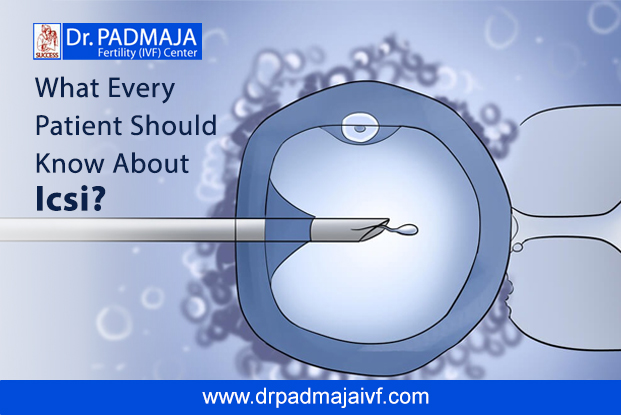In recent years, advancements in fertility treatments have brought hope to countless couples struggling with infertility. Among these, Intracytoplasmic Sperm Injection (ICSI) has emerged as a groundbreaking technique for overcoming male infertility issues. Whether you are just beginning your journey or considering ICSI at a reputed center like Dr. Padmaja IVF Center, here’s everything you need to know about this remarkable procedure.
Understanding ICSI
Severe male factor infertility is treated with ICSI, a specific type of in vitro fertilization (IVF). Unlike conventional IVF, where multiple sperm compete to fertilize an egg, ICSI involves injecting a single sperm directly into the egg. This direct approach significantly increases the chances of successful fertilization, even when sperm quality or quantity is low.
The procedure is particularly beneficial for men with:
Low sperm count (oligospermia).
Poor sperm motility (asthenospermia).
Abnormal sperm morphology (teratospermia).
Blockages or absence of sperm in the ejaculate (azoospermia).
Previous unsuccessful attempts at conventional IVF.
Why Consider ICSI?
For many couples in Hyderabad, opting for ICSI at the best IVF center in Hyderabad, like Dr. Padmaja Fertility Center, provides renewed hope. This technique has revolutionized fertility care, offering a solution for cases where traditional methods have failed. With high success rates and cutting-edge technology, centers like Dr. Padmaja’s stand out in delivering compassionate care.
What to Expect During the ICSI Process
Ovarian Stimulation and Egg Retrieval:
The female partner receives ovarian stimulation to create multiple eggs, much like in IVF. These are retrieved using a minimally invasive procedure under sedation.
Sperm Collection and Preparation:
Sperm is either collected via ejaculation or retrieved surgically if necessary. The most viable sperm are selected for the injection process.
Sperm Injection and Fertilization:
A developed egg’s cytoplasm is injected with a single, healthy sperm using a tiny needle.
Embryo Culture and Transfer:
The fertilized egg develops into an embryo over the next few days. The procedure is subsequently finished when the healthiest embryos are placed inside the woman’s uterus.
Benefits of Choosing ICSI at Dr. Padmaja IVF Center
Modern facilities and a customized approach are hallmarks of the Dr. Padmaja Fertility Center. Patients benefit from:
Expert embryologists skilled in ICSI techniques.
Advanced lab technologies ensuring high success rates.
Comprehensive care tailored to individual needs.
As one of the best IVF centers in Hyderabad, the clinic offers a patient-friendly environment where couples feel supported at every step.
Key Considerations
While ICSI offers hope to many, it’s essential to consult with fertility experts to understand your specific needs. Factors such as age, egg quality, and overall health influence the success of the procedure. Dr. Padmaja Fertility Center specializes in guiding patients through this complex journey, ensuring transparency and support throughout the process.
Conclusion
ICSI has transformed the possibilities for couples facing male infertility, offering a lifeline when natural conception seems out of reach. Choosing a trusted clinic like Dr. Padmaja IVF Center. You will receive the greatest care and the best likelihood of success at Dr. Padmaja IVF Center. If you’re exploring fertility options in Hyderabad, this renowned center combines expertise, innovation, and compassionate care to help make your dreams of parenthood a reality. Take the first step today and consult with the experts at Dr. Padmaja Fertility Center—the best IVF center in Hyderabad—to learn more about how ICSI can change your life
About The Author :

If Dr. Padmaja Divakar is a public figure or a professional in a specific field, I recommend checking her official website, professional profiles, or reliable online sources for the most up-to-date and accurate information about her background, qualifications, and achievements.
Frequently Asked Questions (faqs)
1.What is ICSI?
Intracytoplasmic Sperm Injection (ICSI) is a specialized procedure used in In Vitro Fertilization (IVF) to treat male infertility. A single sperm is injected directly into an egg to facilitate fertilization.
2.Who can benefit from ICSI?
ICSI is recommended for couples with:
Severe male factor infertility (low sperm count, poor motility, or abnormal shape).
Unexplained infertility.
Prior unsuccessful IVF cycles.
Use of frozen eggs or sperm.
3.How is ICSI performed?
The process involves:
Retrieval of eggs and sperm.
A skilled embryologist injects one sperm into each mature egg using a fine needle.
The fertilized eggs are monitored for embryo development and transferred to the uterus.
4.Is ICSI painful?
The ICSI procedure is painless for the patient since it is performed on eggs in a laboratory setting. Egg retrieval may involve mild discomfort, managed with anesthesia.
5.What is the success rate of ICSI?
Success rates depend on factors like maternal age, egg quality, and sperm health. On average, 70–80% of eggs injected with ICSI fertilize, but the overall live birth rate varies.

